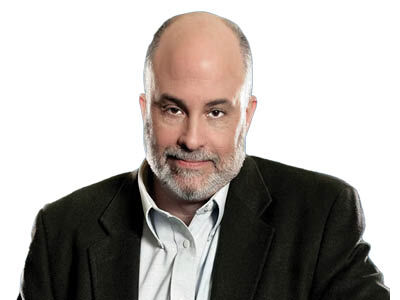Raising ‘Third Culture Kids’ in the Modern Age
News > Politics & Government News

Audio By Carbonatix
7:20 AM on Tuesday, December 17, 2024
By JayDee Vykoukal | Wealth of Geeks
In a recent episode of NBC’s “ Meet the Press,” President-elect Donald Trump declared he plans to end birthright citizenship in the United States.
Trump, who has long criticized the system’s abuse, may have more support than previously thought. An Axios poll taken in mid-2024 suggests a number of voters support his comments.
Conversely, he did show support for “Dreamers,” or those living in the U.S. without legal status who arrived as children alongside undocumented parents. This stance contrasts with Trump’s past rhetoric on the matter.
Though these residents are born elsewhere and pass through several countries before arriving in the U.S., Dreamers embrace American culture once there. Many grow up speaking English as their first language.
Dreamers share similarities with another type of migratory foreigner: the “third culture kid,” or TCK, a term describing those growing up in a country different from their parents’ origin.
The main difference between a Dreamer and a TCK is the latter may be born in a foreign land or even live in multiple countries throughout their childhood. TCK parents, most of whom grew up with firmly planted cultural roots, face subsequent challenges.
In their 1999 book, “ Third Culture Kids: The Experience of Growing Up Among Worlds, “ authors David C. Pollock and Ruth E. Van Reken explored TCKs’ many traits. “The TCK frequently builds relationships to all of the cultures, while not having full ownership in any,” says Pollock. “Although elements from each culture may be assimilated … the sense of belonging is [often] in relationship to others of a similar background.”
Several traits might distinguish a TCK from their more settled peers, both positive and negative. The advantages are:
- Resilience: The constant exposure to geographical change makes TCKs more adaptable to new environments.
- Openmindedness: Immersion in non-native cultures can promote more empathy for others and tolerance of diverse perspectives.
- Linguistic abilities: Many TCKs learn new host languages at school or work, often while juggling one or more native languages at home.
- Cultural comfort: TCKs have fewer problems understanding or appreciating different worldviews, religious norms, and culinary conventions.
However, not all TCKs have it easy, especially when surrounded by peers born and bred in their non-native homes. This scenario can manifest in certain ways:
- Identity crises: Not living in at least one parent’s host culture for too long can be detrimental to building identity, especially when returning to that country.
- Strugglingwithstability: Living one’s formative years in flux can make adapting to long-term situations difficult.
- Underlyingloss: It isn’t easy to say goodbye to childhood friends, which can lead to grief later in life. Losing access to these relationships might create trust issues when making new ones.
- The inability to settle down: The exposure to constant moving can hinder a TCK’s chances of putting down roots in one location.
Ruth Useem is widely considered the “mother of TCKs” and has explored the phenomenon since the ’50s. Of course, the world has changed much since she lived abroad, became a TCK, and later had three of her own.
Useem’s website documents much of her work, including a series of academic reviews on the subject. In one survey, she and her colleagues polled adult TCKs living in the U.S. Only 10% of respondents said they had attuned to everyday U.S. life after a long time elsewhere.
Useem’s generation of TCKs differs from today’s more interconnected youngsters. TCK traits might have been more accentuated in her day, as kids in the ’50s and ’60s didn’t have the technology to keep in contact with friends and families abroad. Yet, raising a modern TCK still comes with many challenges and rewards.
In one study for parents considering a move abroad, American Steve Gardner, founder of the teen empowerment organization The Global Impact Council, shares parenting tips from life in Singapore. Gardner shares two boys with his wife, who is from China.
“Every year, we aim to take our kids to both of their heritage countries — US and China,” he writes. “That way, they know they live in Singapore, but they’re from two other different countries.”
He cites the difficulty in creating an effective linguistic environment at home as just one part of embracing a multicultural lifestyle. When they lived in the U.S. during their first child’s early years, he and his wife chose to speak Mandarin at home. They found switching to English made better sense once abroad, if anything, to preserve cultural ties to the U.S.
“While it’s a lot of work to maintain multiple languages in our home, it’s required for our kids to connect with their heritage,” he said. “This gives them … a greater sense of belonging wherever they may be.”
Most importantly, Gardner has a methodology for helping his kids adapt to their future surroundings. People who grow up and live adult lives in the same place can always feel they belong in one place. Gardner prefers his boys “explore their core values so that they won’t be caged into a false identity chosen for them by their peer group.”
The TCK lifestyle will become more widespread in the coming years, as evidence shows the rising American expat population. In the first three quarters of 2024, there was a 28% increase in U.S. citizens being expatriated compared to the same period in 2023.
Meanwhile, the Association of American Residents Overseas estimates that 5,538,342 U.S. citizens currently live abroad, the highest number since the COVID-19 pandemic.
This article was produced by Media Decision and syndicated by Wealth of Geeks.






